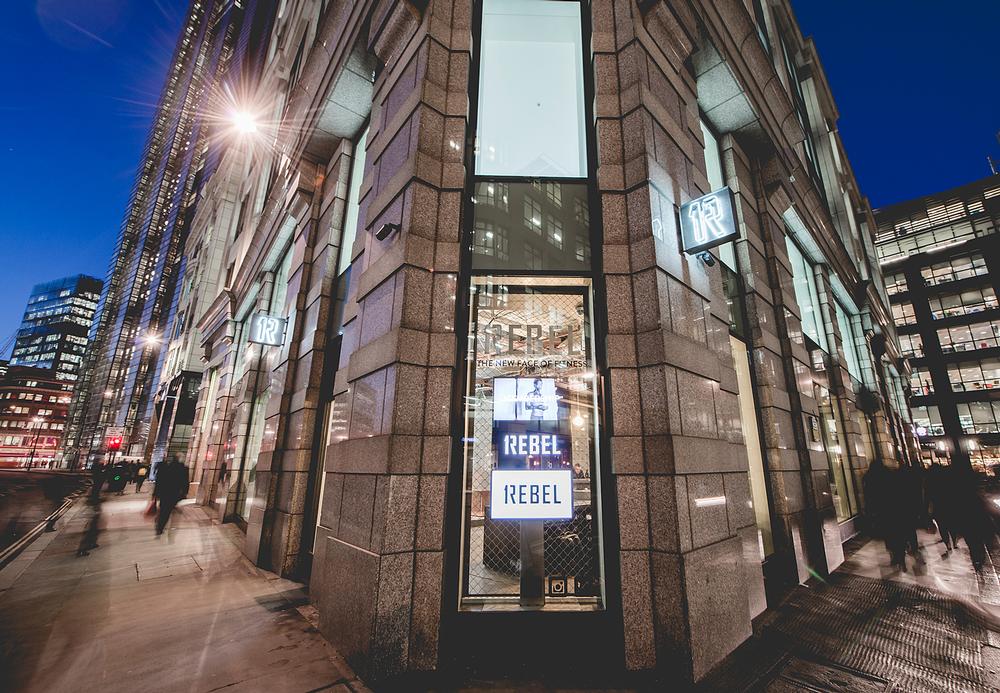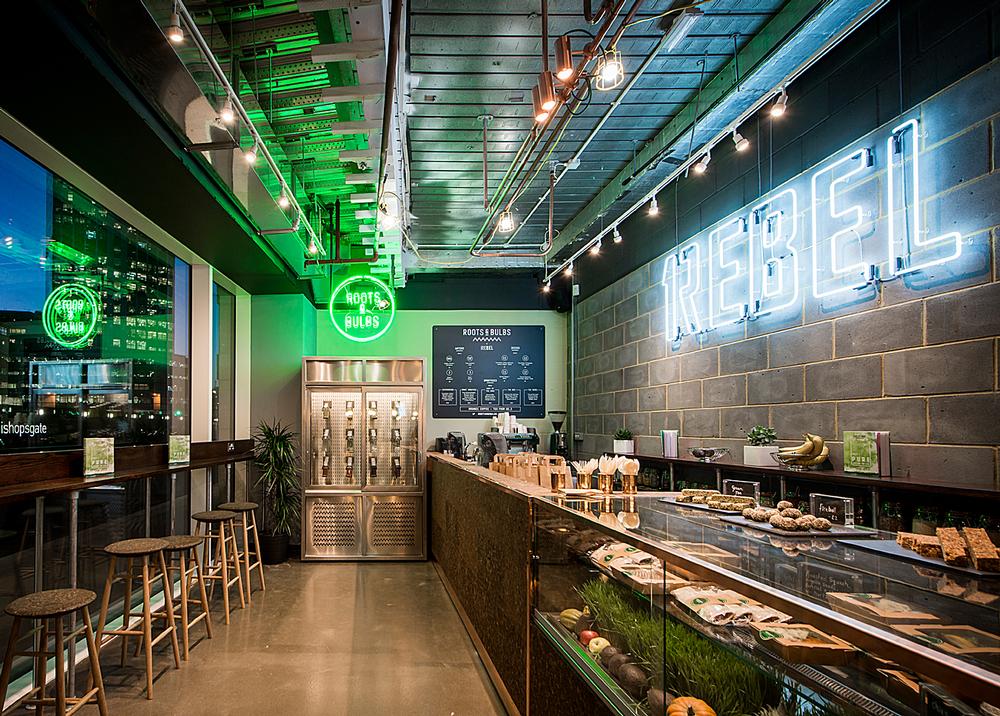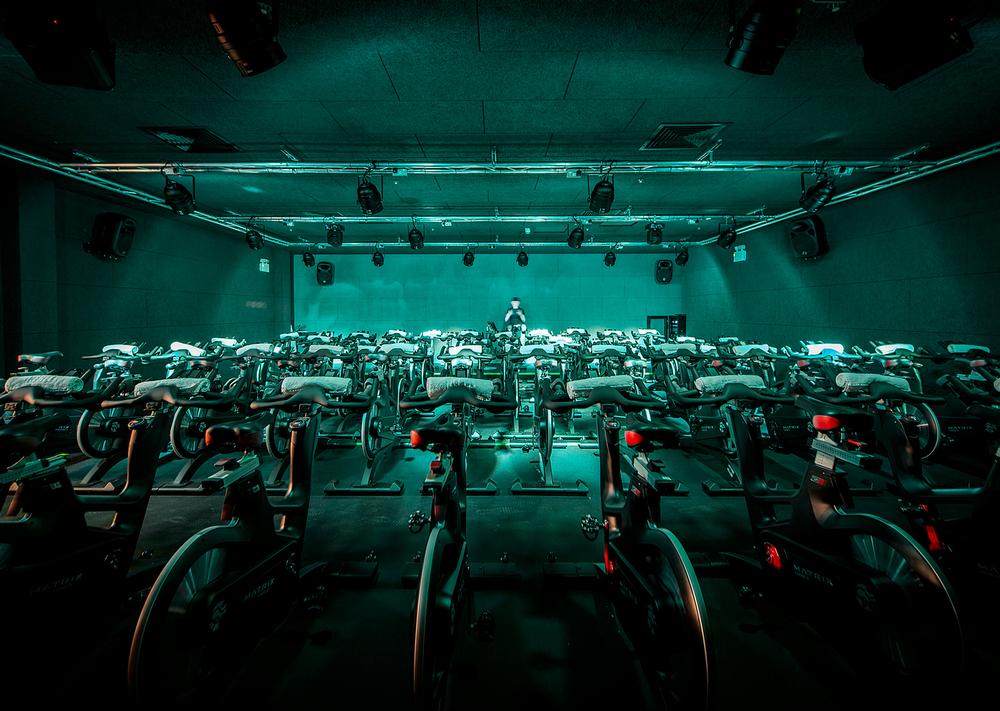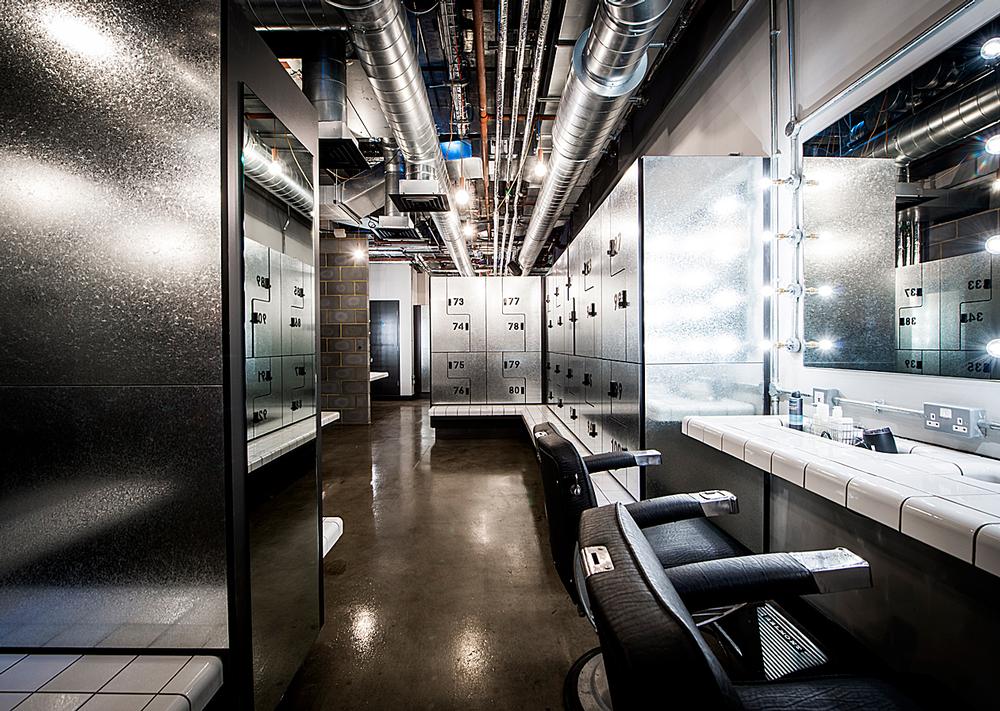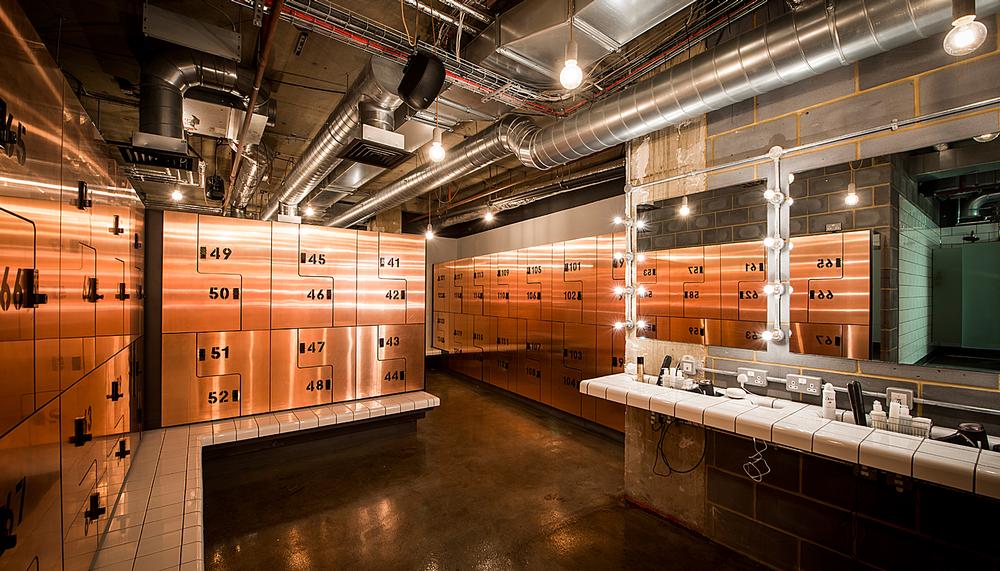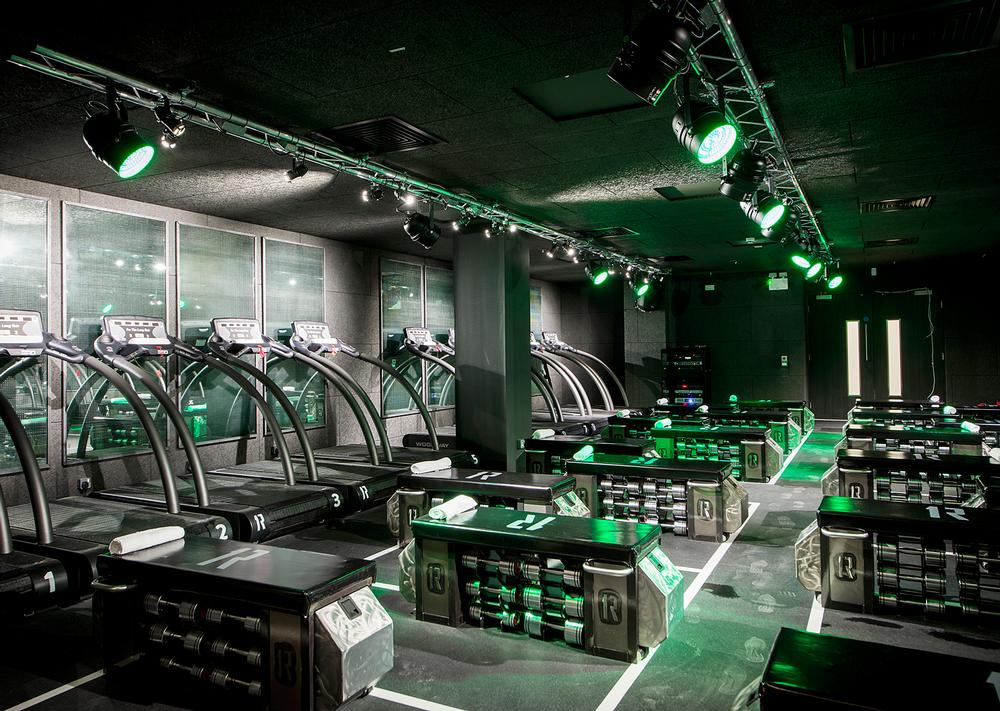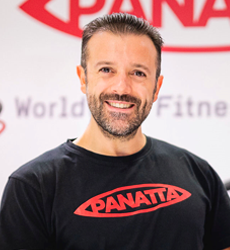The launch club for new microgym operator 1Rebel occupies a prime stretch of street level ‘shop frontage’ close to the Gherkin in the City of London. This meticulously crafted club offers showers designed by a glass designer for the Apple stores, a celebrated international DJ is responsible for mixing all the club’s music, and exercisers get not just one complimentary towel but can choose from towels at ambient temperature, warmed on exposed copper piping, or refreshingly infused with eucalyptus. It’s this kind of attention to detail that makes 1Rebel a ‘boutique’ microgym in every sense of the word, according to the brand’s co-founder James Balfour.
“The fitness industry uses the term ‘boutique’ rather loosely,” he explains.
“If I go to a boutique hotel I expect, and usually receive, five-star accoutrements. That’s not always the case in a so-called boutique gym. The changing rooms, for instance, are usually a big let-down.”
Ahead of the first club opening in January, 1Rebel’s management team made some bold claims. They talked about the brand being “an industry disruptor”, with the website stating: “We’re revolutionising London’s fitness industry… we’re ditching the tired model and building destinations, not just gyms.”
These are claims that 1Rebel’s young and ambitious team – which consists of Balfour, 31, fellow co-founder and former lawyer Giles Dean, 39, and operations director and fitness industry veteran Kevin Yates, 37 – wholeheartedly stand by. “We’ve conceived 1Rebel as a premium experience from start to finish, from the classes and instructors through to the changing rooms and the organic food and juices people can buy. It’s a five-star offering that we really don’t think has existed until now,” says Balfour.
Meet the team
On paper, and indeed in real life, the exuberant trio seem a formidable team. Balfour descends from fitness royalty, his father being Mike Balfour, founder of Fitness First, who established a global chain of over 500 clubs in 25 countries.
Balfour Jnr deliberately avoided the fitness industry in his teens and early 20s, choosing instead a life of extreme adventure, joining expeditions to places like the South Pole and Everest (at 24, he was one of the youngest to reach the summit), before eventually succumbing to a desk job in investment banking for three years.
But by his mid-20s he was ready to come into the fitness fold, cutting his teeth with the launch of health club chain Jatomi Fitness in Eastern Europe in 2007, along with his father Mike and former Fitness First operations director Tony Cowen. Yet Balfour now readily admits he “wasn’t really proud of the product”. One gets the sense it was too run of the mill for James, who by then had experienced the excitement of glaciers and death-defying mountains and longed to bring the essence of this into a fitness brand.
Balfour first met Dean, a Cambridge graduate, when the latter was living in Warsaw and eventually joined Jatomi as its in-house lawyer. The year was 2013, and both men had been impressed by the “phenomenal” microgyms of New York (SoulCycle, Barry’s Bootcamp) – but believed the concept could be made even better. Dean explains: “James and I had both noticed how popular the NY studio-based concepts were, and were independently telling Mike that we saw these as the future. Mike put us in a room together and told us we both wanted to go in the same direction. 1Rebel was founded from there.”
While Dean brings laser vision and the attention to detail of a lawyer to the business, Balfour is known for his determination, strong sense of direction and talent for managing investor relations. The third team member, Yates, complements these qualities with his fitness industry knowledge and experience: he spent a decade with Balfour’s father Mike at Fitness First before moving on to other businesses, including Leisure Connection and more recently opening two clubs of his own in Sheffield, before getting the call from Balfour and Dean. Yates is now heavily involved with 1Rebel’s operations, staff training and class programming. He has also pulled together a roundtable of industry and non-industry experts, including explorers and world champion sportspeople – many of whom have also invested in the brand via crowdfunding – to help guide the direction of the brand.
Dean comments: “As a start-up, we’re all involved in pretty much everything, but we’re fortunate to have different skillsets and passions within our management team which enable us to cover many bases effectively.
“My particular skillsets enable us to ensure we challenge and debate every decision to the n’th degree. My passion lies in creating and developing the brand, the club design and the fit-out. James’ overwhelming strength is his tenacity and determination: once a position is agreed, James will see it through, even if it’s one he may originally have argued against. Kevin’s is his infectious personality and energy – something the entire head office and club team naturally gravitate towards.”
Breaking the rules
With the creation of 1Rebel, the trio claim they’ve set out “to break all the rules” of fitness clubs before them. As Dean says: “We’re passionate about market disrupters: companies with conviction and a will to change things, not for the sake of change, but because changing would make things better.”
Their first bold move was to eschew the traditional funding route and launch their project on UK crowdfunding website CrowdCube in October 2013. “We could have fallen flat on our faces, but instead it was a huge success: we raised £1m in 10 days, and went on to raise £1.5m from 300 investors in a month,” says Balfour.
The rest of the total £2m funding has come from the trio and Mike Balfour, who’s a non-executive director. There’s currently enough funding to launch the first two 1Rebel clubs.
The brand, which Balfour says is designed “to bridge the gap between fitness and fashion”, is squarely targeted at millennials – the cohort born between the 1980s and mid-2000s whose formative years have been dominated by technology, and yet who value community, family and meaningful experiences.
The club will be totally cashless, paperless and pay-as-you-train, with all customers signing up and booking classes online, and ‘paying’ for things in-club via their ID. There will, stresses Balfour, be no tie-in contracts, deals or special offers and “definitely no crappy free T-shirts or paper timetables handed out”.
“People will either like it and buy into it or they won’t,” he adds uncompromisingly. “This generation don’t believe any corporate marketing BS – they go online and read peer reviews before deciding for themselves. We have to earn their loyalty by delivering excellence every time.”
Mental and physical
The club, which is spread over a ground floor and basement, offers 8,000sq ft of space structured around two studios with theatre-grade lighting. The Ride studio has 64 of the latest ICG indoor bikes, and incorporates weights and bands into the classes. The Reshape studio offers bootcamp-style classes and yoga, with Woodway treadmills and all exercise equipment conveniently housed in a patented workbench – the 1Rebel Box – designed by Escape Fitness. There’s also a reception area, café and changing rooms.
The club’s interior, which has been designed by London-based architect firm Studio C102, is described as “industrial luxe” and features lots of reclaimed items and unexpected details like fire hoses being used for the hand shower attachments. Dean says: “The result is a space that I believe could win awards. We have an environment of pared-back modernity juxtaposed with sophistication and unexpected comfort. For me, it’s the obvious thought process and attention to detail to every part of the club that stands out the most.”
But while the design looks set to impress, there’ll also be a lot of eyes on the classes to see just how different they are from other microgym offerings. Here, Balfour has brought his passion for extreme environments to the fore, looking to recruit and train instructors with a certain mental toughness that will enhance the class experience.
He says: “A lot of classes are taught by people who’ve always been fit, but they don’t connect well to the mental side of workout. It’s something the industry doesn’t do very well.
“We want to get customers into a class that really pushes them, so they get the results of personal training but in a group training environment. We also want to give them something that improves their mental strength and pushes them through boundaries they didn’t know existed before they came to class.”
And the high calibre staff will be well rewarded for their efforts, according to Yates, with pay rates far higher than the industry average and a degree of flexible working that enables an enjoyable work-life balance. “If staff only want to work a three-day week so they can spend more time with their family, then we can accommodate that,” Yates adds.
Embracing change
When asked what brands they admire, it’s perhaps not surprising that the 1Rebel team cite business models that fall outside the health and fitness industry and that are well loved by millennials – brands such as Uber for transport and Airbnb for accommodation, both of which have been hugely successful at tapping into consumer needs.
Balfour says: “Although there are some notable exceptions like Les Mills CEO Phillip Mills, who’s a true visionary, the fitness industry has been slow to adapt and change with the times.
“My father is a similar age to Phillip, in his 60s, and even though he’s proud of what he created, he recognises the fitness market now needs to change. He kind of likes that fact that we’re totally rebelling against the model he pioneered before us.”
With one club up and running, and plans for another six to eight clubs across the City over the next few years, it remains to be seen whether 1Rebel can shake up the market and establish itself as the truly original lifestyle brand it aspires to be.
But as Dean concludes: “Among the more traditional operators I see a refusal to change, or a fear of the cost of change, as their major challenge. However, many different industries are seeing that it only takes one disrupter to change a market.”









